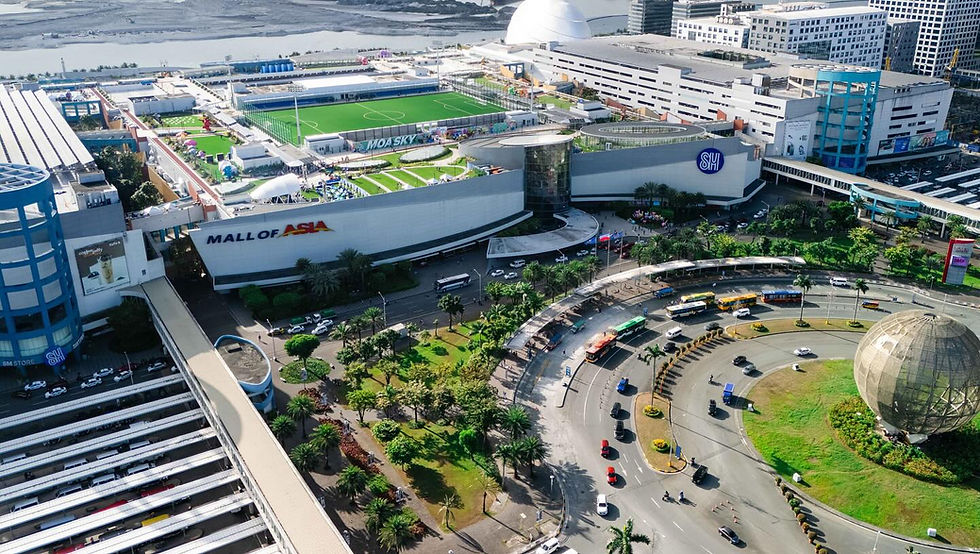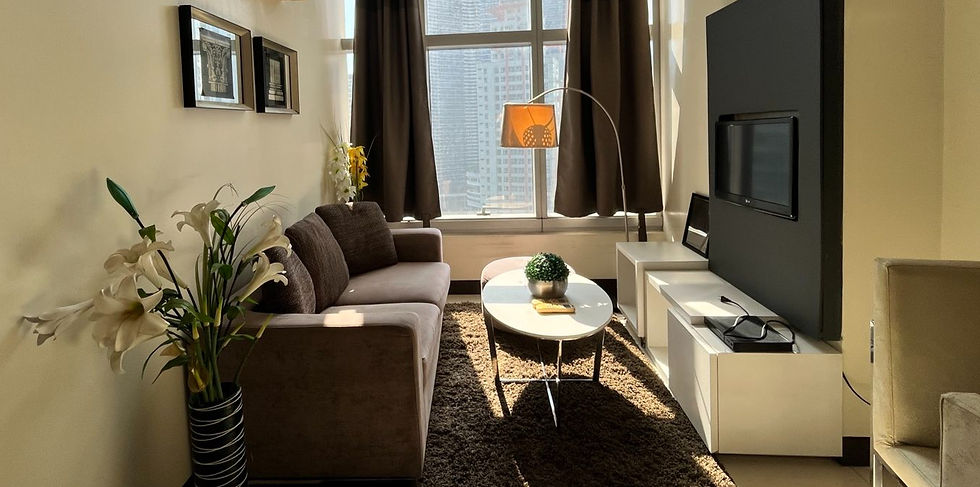Airbnb vs Long-Term Leasing: 6 Essential Comparisons for Maximizing ROI in Manila Real Estate
- bedandgoinc
- 2025年9月12日
- 読了時間: 4分
September 12, 2025

For Manila condominium owners, one of the biggest decisions is whether to rent out a unit as a short-term Airbnb listing or through a long-term lease. Both options can generate consistent cash flow, but the path to higher return on investment (ROI) depends on your goals, risk appetite, and how you manage your property.
This guide breaks down six essential factors every unit owner should evaluate to make the most of their Manila Real Estate investment.
1. Income Potential and Pricing Power
Airbnb’s nightly rates often exceed the daily equivalent of a long-term lease. A well-located studio in BGC or Makati can earn ₱2,000–₱4,000 per night during peak seasons—far higher than the average monthly rent of ₱35,000–₱45,000 for the same unit.However, higher nightly rates don’t automatically mean higher ROI. Occupancy rates vary with travel trends, local events, and seasonality. If your Airbnb sits vacant for long stretches, your annual income could lag behind a stable long-term lease.Tip for unit owners: Compare your condo’s potential nightly rate with current long-term rental rates in the same building to calculate a realistic break-even occupancy rate.
Sample ROI Comparison: Airbnb vs. Long-Term Leasing in Prime Manila Areas
Category | Airbnb (Short-Term) | Long-Term Lease |
Average Daily/Monthly Rate | ₱2,500 – ₱4,000/night (≈₱75,000 – ₱120,000/month at 75% occupancy) | ₱35,000 – ₱45,000/month fixed |
Estimated Annual Gross | ₱900,000 – ₱1.4M (with 70% occupancy) | ₱420,000 – ₱540,000 |
Seasonality Impact | High – rates fluctuate by peak travel season and local events | Low – stable income year-round |
Vacancy Risk | High – bookings can dip unexpectedly | Low – fixed-term lease guarantees rent |
Management Time | High – requires active hosting, cleaning, and guest turnover | Low – limited tenant interactions |
Example: A Makati studio priced at ₱3,000 per night needs at least 40–50% occupancy to match a ₱40,000 monthly long-term lease.
This table highlights the key trade-off: Airbnb offers higher gross potential, but requires stronger management and higher occupancy to outperform the predictability of a long-term lease.
2. Occupancy Stability vs. Market Volatility
Long-term leasing offers stability. A one-year lease guarantees fixed monthly income, protects you from sudden dips in demand, and minimizes the stress of frequent guest turnover.Airbnb, on the other hand, thrives on flexibility but is vulnerable to market shocks. Travel restrictions, economic slowdowns, or even sudden changes in city ordinances can lower bookings. Owners who choose the short-term route must be prepared to adjust pricing and marketing strategies quickly to keep occupancy high.

3. Operational Costs and Time Commitment
Operating an Airbnb is closer to running a small hospitality business than a simple lease. Cleaning fees, linen replacements, booking platform charges, and regular maintenance can eat into profits.Long-term leasing typically involves fewer expenses: one-time marketing costs, minimal furnishing upgrades, and predictable repair schedules.Manila Real Estate Insight: Many successful Airbnb hosts hire property management services to handle check-ins, cleaning, and guest communication. While these services reduce stress, they also take a 15%–25% share of monthly revenue.
4. Legal and Regulatory Considerations
Short-term rentals are subject to varying rules depending on your condominium’s management and local government regulations. Some condo boards in Makati, Ortigas, or BGC restrict Airbnb operations or require special permits. Violating these policies can lead to penalties or even eviction of guests.Long-term leasing is straightforward under Philippine rental laws. Standard lease contracts, tax requirements (such as 5% withholding tax or 12% VAT if applicable), and security deposits are well established and easier to navigate.Action Step: Before listing on Airbnb, confirm with your condo association and city hall that short-term rentals are allowed.
5. Target Market and Tenant Profiles
Airbnb attracts a rotating mix of tourists, digital nomads, and business travelers who value convenience and flexibility. This can result in higher wear and tear but also allows you to adjust rates dynamically.Long-term tenants—whether young professionals, expats, or small families—tend to treat the property like a home, leading to lower maintenance costs and more predictable relationships.For unit owners who prioritize a low-touch, low-risk strategy, the long-term market in Manila Real Estate remains strong, particularly in CBDs such as BGC, Makati, and Ortigas where corporate leases are common.

6. Taxation and ROI Calculation
Both rental models require proper tax compliance. Airbnb income is considered business income, subject to income tax, percentage tax or VAT (if thresholds are met), and sometimes local business permits. Long-term leasing may qualify for a 5% expanded withholding tax and 12% VAT if rental income exceeds ₱3 million annually.To accurately compare ROI, factor in:
Gross Annual Income (nightly rate × occupancy vs. monthly rent × 12)
Operating Expenses (utilities, cleaning, repairs, management fees)
Tax Obligations (BIR registration, income tax brackets)
Pro Tip: Use a spreadsheet to model conservative and aggressive scenarios. This will help determine which strategy yields a better net return after all costs.
Matching Strategy to Your Investment Goals
The right choice between Airbnb and long-term leasing depends on your risk tolerance, lifestyle, and income goals.
Choose Airbnb if you enjoy active property management, are comfortable with market fluctuations, and own a unit in a high-demand tourist or business district like BGC or Makati.
Choose Long-Term Leasing if you value steady cash flow, lower operational stress, and compliance simplicity.

With Manila’s rising condo supply and steady demand from both travelers and professionals, either approach can be profitable when managed strategically.For unit owners looking to maximize ROI in Manila Real Estate, the key is careful analysis, accurate cost tracking, and—if opting for short-term rentals—partnering with a trusted property management company to keep your investment running smoothly.
SOURCE:









コメント